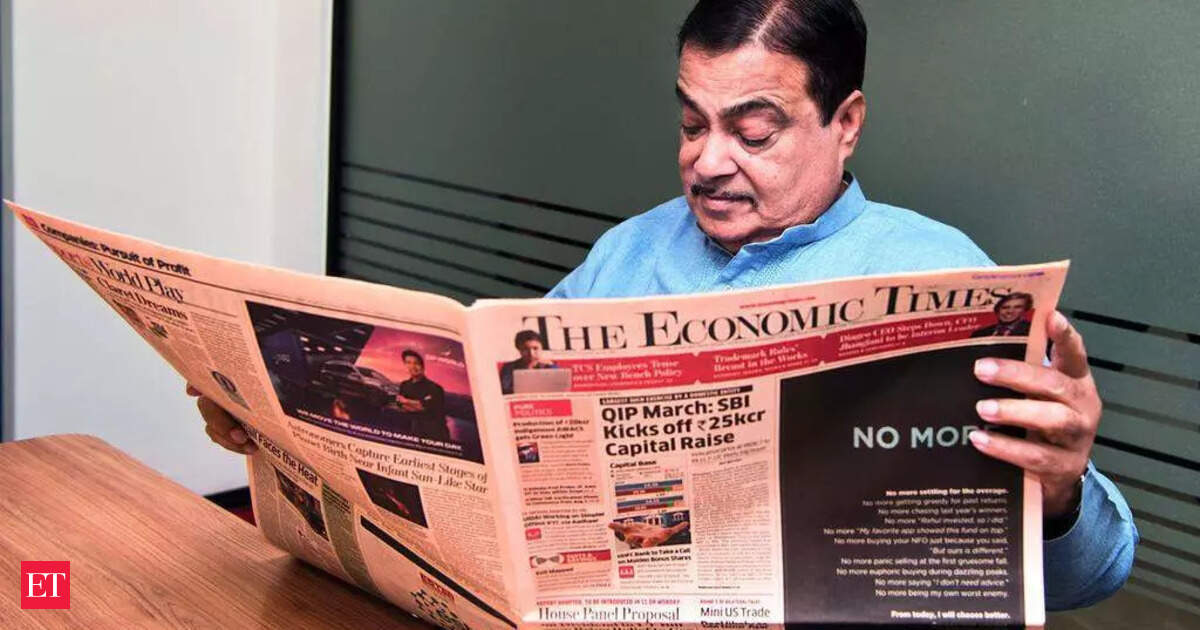Key Takeaways
- India is considering a GST rate cut on higher ethanol-fueled vehicles to promote adoption and reduce fossil fuel imports.
- The government is exploring increasing the ethanol content in fuel from 20% to 100%, with various automakers developing flex engines.
- Efforts to improve road safety and infrastructure are underway, along with initiatives to enhance agricultural GDP through energy diversification.
Nitin Gadkari, India’s Minister for Road Transport and Highways, announced on July 17 at an ET Roundtable in New Delhi that the government is contemplating a reduction in the Goods and Services Tax (GST) on fuel blends with higher ethanol content. This initiative aims to encourage the use of vehicles powered by 100% ethanol, thereby reducing reliance on fossil fuel imports, curbing pollution, and promoting self-reliance in energy.
Gadkari highlighted the ambitious target for road infrastructure development, aiming to achieve 100 kilometers of national highways per day, a significant increase from previous averages. He underscored the necessity of transitioning agriculture towards energy and power, especially to address the country’s high fossil fuel import costs and its 85% energy dependency.
The minister addressed challenges in Indian agriculture, citing issues with high minimum support prices and storage of surplus food grains. He believes that converting surplus food into fuel will not only mitigate fossil fuel imports but will also enhance agricultural GDP from 12% to 24%.
Currently, India uses an E20 blend, which contains 20% ethanol. There are plans to explore increasing this blend to as high as 100% ethanol in vehicles, with major manufacturers like Tata Motors, Mahindra, and Toyota developing flex engines. Furthermore, various two-wheeler manufacturers are also working on completely ethanol-powered motorcycles.
Gadkari emphasized the potential of ethanol as a economically viable alternative to petrol, noting its lower cost and environmental benefits. However, he identified the current 18% GST on ethanol-blended fuels as a significant barrier to wider adoption compared to the 5% GST on fuels with up to 20% ethanol.
In addressing the automobile industry’s growth, Gadkari noted that India is now the third-largest auto market globally, positioned behind China and the U.S. While discussing vehicle emissions, he expressed the importance of aligning with international standards, including the transition to Euro VII norms.
Road safety remains a critical concern; Gadkari revealed initiatives to encourage immediate medical assistance during accidents and improve construction quality by revising procurement practices. This includes a mandate for project consultants to ensure roads are built to superior standards. Furthermore, initiatives are in place to enhance vehicle safety measures, such as mandatory airbags in cars.
Regarding modernization efforts, Gadkari outlined plans to create a water grid for better management of water resources, showing commitment to holistic infrastructure development. He also mentioned advancements in battery technology and the aim for self-reliance in automotive components to lessen dependency on foreign suppliers like China.
Gadkari concluded with the assertion that successful governance must extend beyond mere electoral politics, transforming it to focus on genuine societal welfare and infrastructure enhancement for better quality of life across India.
The content above is a summary. For more details, see the source article.















